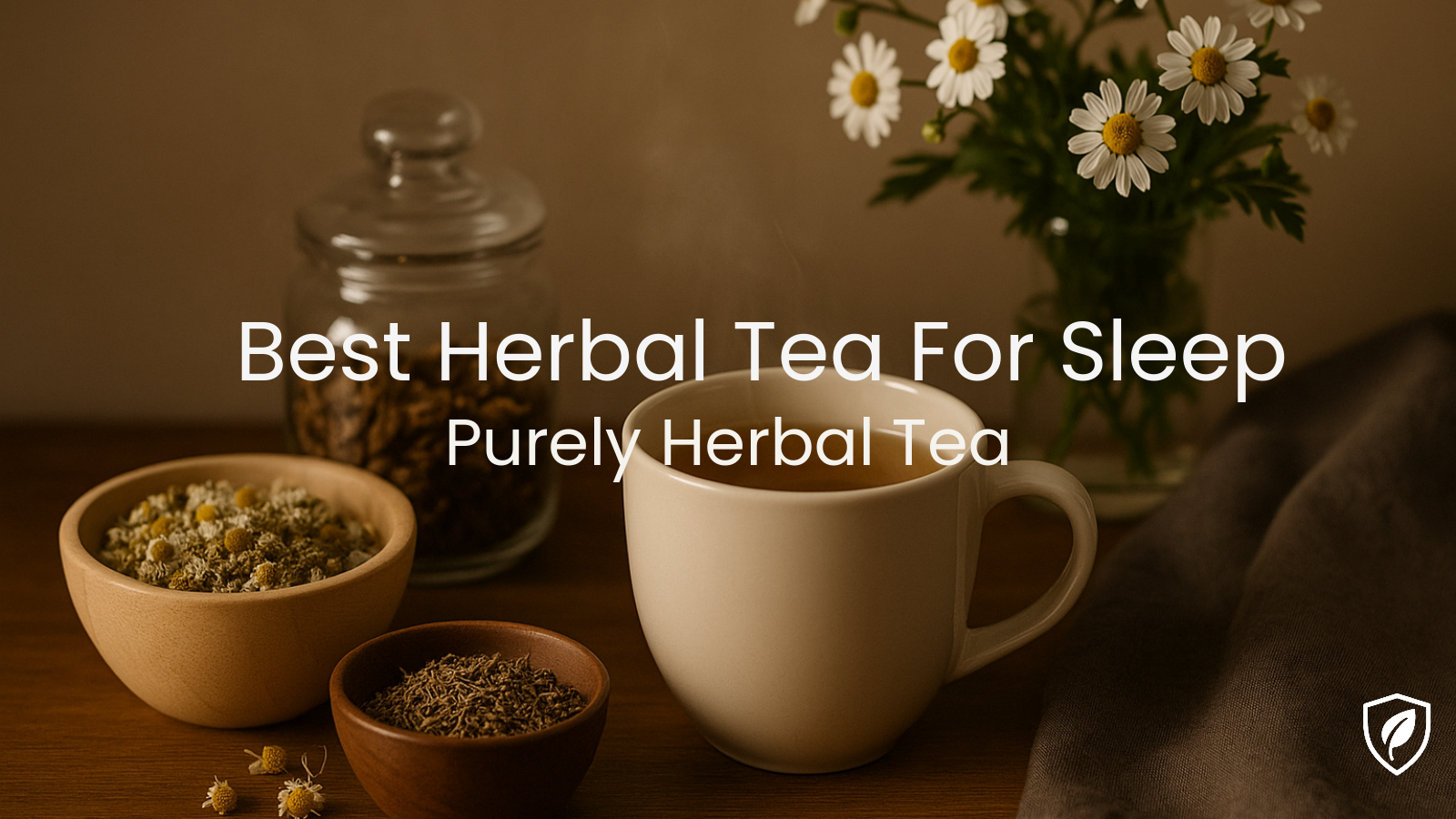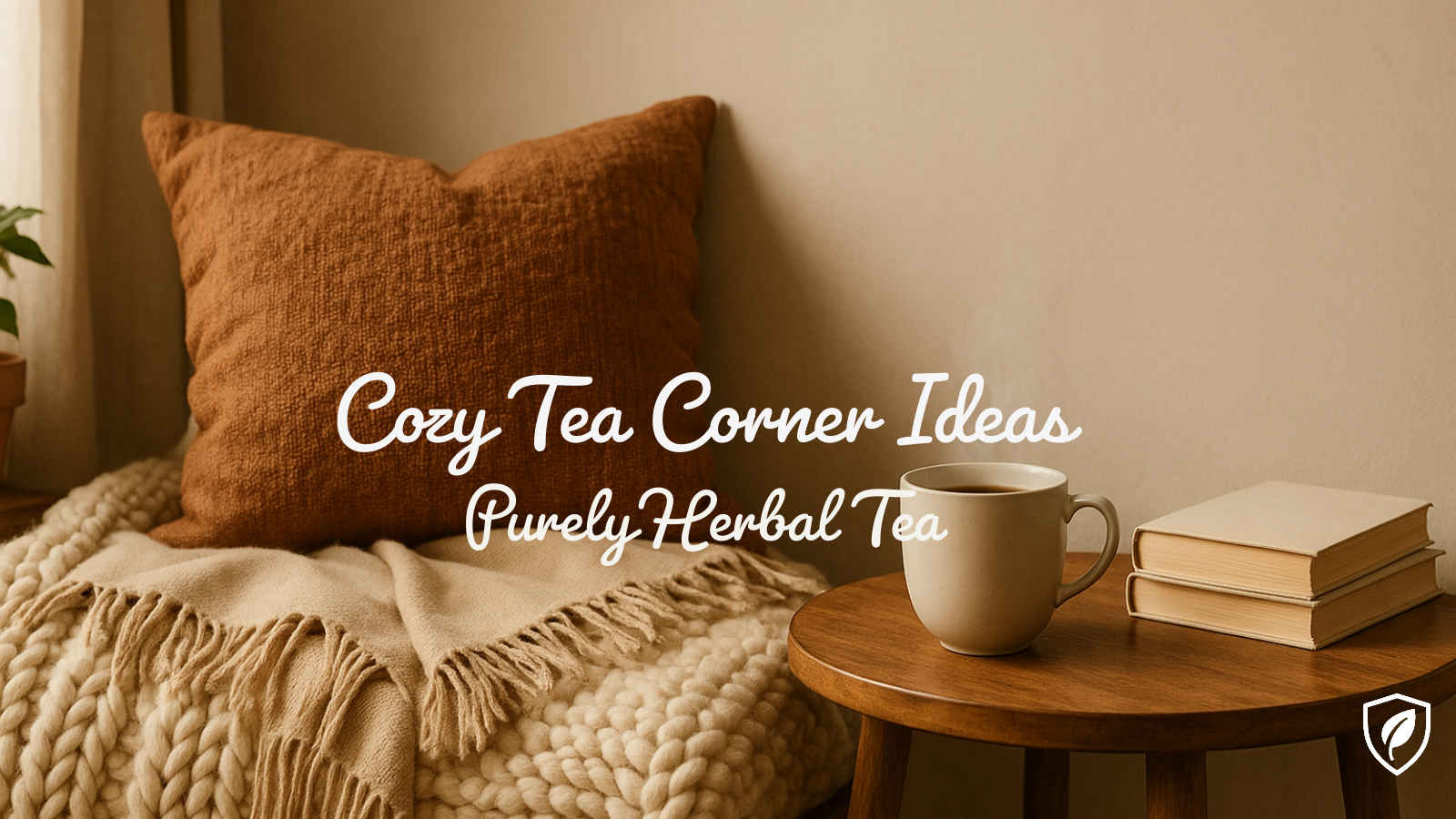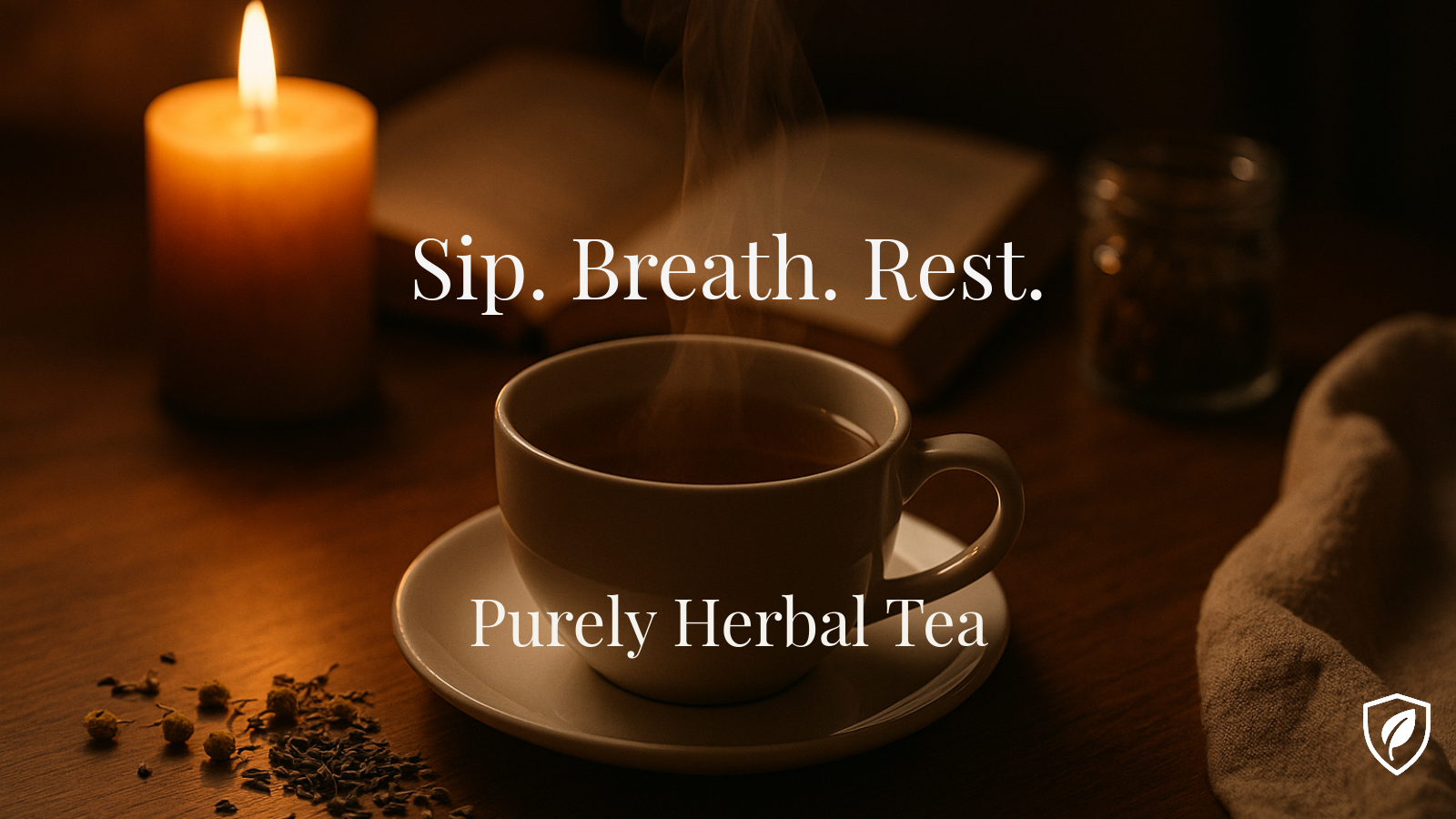
What Is the Best Herbal Tea for Sleep?
If you’re searching for the best herbal tea for sleep, you’re not alone. Many nighttime sippers find that a simple mug can signal the body to wind down—especially when paired with a gentle routine. Below, we compare popular bedtime botanicals and show you how to build a cozy ritual that actually sticks.
This article offers general wellness information and isn’t medical advice. If you’re pregnant, nursing, on medication, or have a health condition, consult your clinician before using herbs.
Top bedtime botanicals (at a glance)
- Chamomile – Classic floral calm; naturally caffeine-free and easy to sip nightly.
- Valerian root – Traditionally used to support deeper rest; earthy flavor, often blended.
- Lavender – Aromatically soothing; pairs beautifully with chamomile.
- Lemon balm – Bright, lemony herb often used to ease mental chatter.
- Passionflower – Gentle vine used traditionally to quiet a racing mind.
For seasonal wind-down ideas, see our pillar guide: Fall Rituals with Herbal Tea to Bring Calm to Busy Days.
What tea helps me fall asleep quickly?
If “fast” is your goal, start with chamomile tea for sleep. Its soft apple-like flavor makes it easy to drink 30–60 minutes before bed, and it blends well with lavender or lemon balm for extra aromatic comfort. Keep water just off the boil, steep 5–7 minutes, and sip slowly.
Is chamomile the best herbal tea for sleep?
“Best” depends on your body and preferences. Chamomile is the most approachable and widely loved. If you’re already using it, try a blend that adds lavender for aroma or lemon balm for a brighter, calmer finish. Curious how it compares to another favorite? Read our sideways guide: Chamomile vs Lavender Tea: Which Helps You Sleep Better?
Can valerian tea improve sleep quality?
Valerian root tea for sleep is traditionally used by people who want deeper rest. The flavor is earthy—many prefer it blended (for example, with chamomile and mint). Begin with a shorter steep (5 minutes) and adjust to taste. As with any herb, consistency over several nights is key for evaluating how you feel.
Build a bedtime tea ritual (5 simple steps)
- Choose your base: Chamomile for gentle calm; valerian-forward blends for deeper wind-down.
- Set the scene: Dim lights, silence notifications, and head to your tea corner.
- Steep with intention: Inhale the steam, count five slow breaths while it rests.
- Slow the sip: Place the mug down between sips; feel the warmth in your hands.
- Repeat nightly: Your brain learns the cue: tea = bedtime.
Explore calming blends from our Evening Collection—crafted to make the last hour of the day feel peaceful, simple, and consistent.
FAQs
What tea helps me fall asleep quickly?
Chamomile is the easiest fast-track option. Brew 1–2 teaspoons in hot water for 5–7 minutes and enjoy 30–60 minutes before bed. Lavender or lemon balm can add aromatic calm.
Is chamomile tea the best for sleep?
It’s the most popular because it’s gentle and pleasant. If you prefer a deeper wind-down, look for blends that include valerian root or passionflower alongside chamomile.
Can valerian tea improve sleep quality?
Many bedtime blends use valerian to support deeper rest. Because its flavor is strong, try it blended and give it a few nights to evaluate how you feel.
Related reads:
- Chamomile vs Lavender Tea: Which Helps You Sleep Better?
- Chamomile Tea Benefits for Sleep and Relaxation
Tonight’s ritual: Choose a blend from the Evening Collection, dim the lights, and take five slow breaths between each sip.

